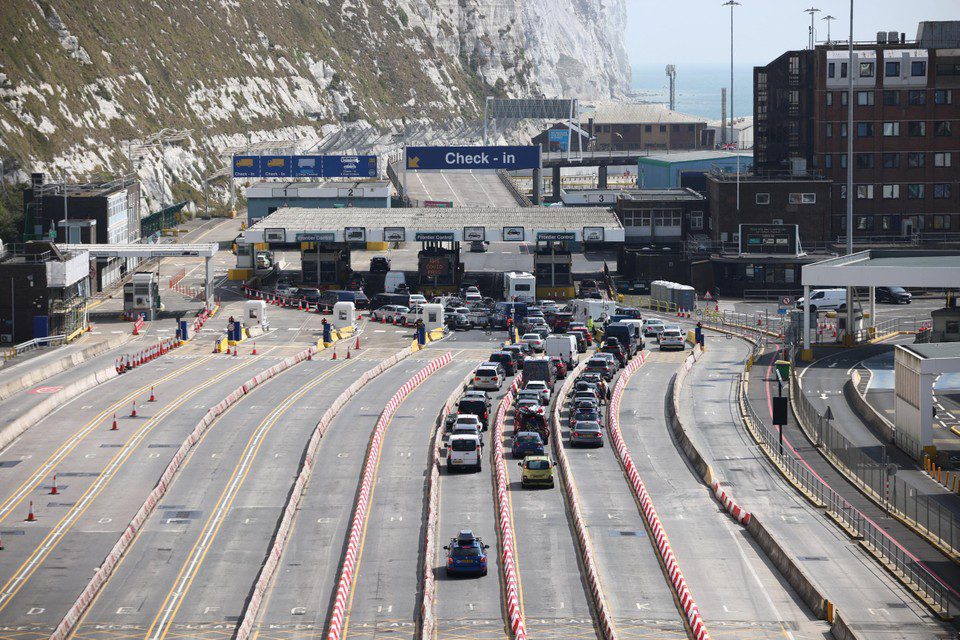© AB
Traffic flow in and around the British port of Dover returned to “normal” as long queues blocked holiday evacuations. But those long queues will become the “new normal” post-Brexit, it sounds.
Source: Belga
Delays were caused by additional border controls after Brexit and understaffing of French officials at checkpoints in Dover. However, the port said on Twitter at 2.15am on Sunday (3.15am Belgian time) that the temporary system to manage excess traffic in the area had ended and traffic could go directly to the port.
Both tourism and freight traffic are returning to normal. However, this would not be the last time such chaos would occur at the port. Two British prime ministerial candidates, Liz Truss and Rishi Sunak, both pointed the finger at French border guards. Sunak said the French should “stop blaming Brexit and start recruiting the necessary staff to meet demand”. His rival, Truss, who is now foreign minister, said he was in touch with his French counterparts and spoke of a “lack of resources at the border”.
But on the French side, diplomats, government officials and border guards declare it all the result of the post-Brexit era. All passports must be verified. France’s Transport Minister Clement Beaum added: “France is not responsible for Brexit.”

By Sunday, it looked as if the problems had been resolved. — © REUTERS
“New Nature”
But the French in the UK are also understanding. According to Lord Ricketts, the former British ambassador to France, massive delays in Dover will become the “new normal” after Brexit. Long queues are an inevitable consequence of Britain’s decision to leave the EU and all the bureaucracy they have thrown at them. “The shortage of French border guards is a short-term tactical problem. The serious long-term problem is that this is the first time since Brexit that we will see full pressure on the border. Even with a full French border guard staff, there will still be massive delays because the port of Dover cannot handle the volume,” he said.
“The basic fact is that given the size of the port, because the government has not invested in expanding the facilities, however many they have, it will remain the same – this will be the new normal.”
